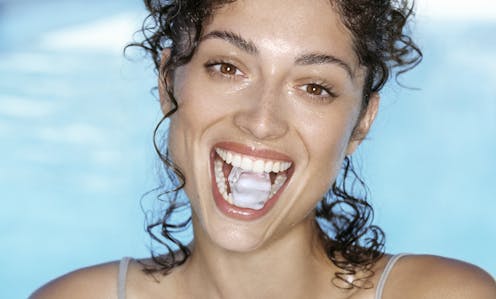Is chewing on ice cubes bad for your teeth?
- Written by Matthew Cooke, Associate Professor of Pediatric Dentistry & Anesthesiology, University of Pittsburgh Health Sciences

References
- ^ Curious Kids (theconversation.com)
- ^ curiouskidsus@theconversation.com (theconversation.com)
- ^ Ice chewing or crunching (www.medicalnewstoday.com)
- ^ dry mouth (www.webmd.com)
- ^ relieve stress (www.dentalplans.com)
- ^ simply be a habit (www.colgate.com)
- ^ Chewing ice could lead to cracks in enamel (www.mouthhealthy.org)
- ^ softer layer of the tooth, the dentin (www.mouthhealthy.org)
- ^ fillings (www.news-medical.net)
- ^ crowns (my.clevelandclinic.org)
- ^ veneers (www.webmd.com)
- ^ expanders (www.sproutpediatricdentistry.com)
- ^ root canal (www.aae.org)
- ^ the bacteria that can linger in icemakers (jamaicahospital.org)
- ^ iron deficiency (www.mayoclinic.org)
- ^ pagophagia (doi.org)
- ^ reason for this isn’t clear (www.mayoclinic.org)
- ^ their baby teeth (evolve.elsevier.com)
- ^ CuriousKidsUS@theconversation.com (theconversation.com)
Read more https://theconversation.com/is-chewing-on-ice-cubes-bad-for-your-teeth-168714

















